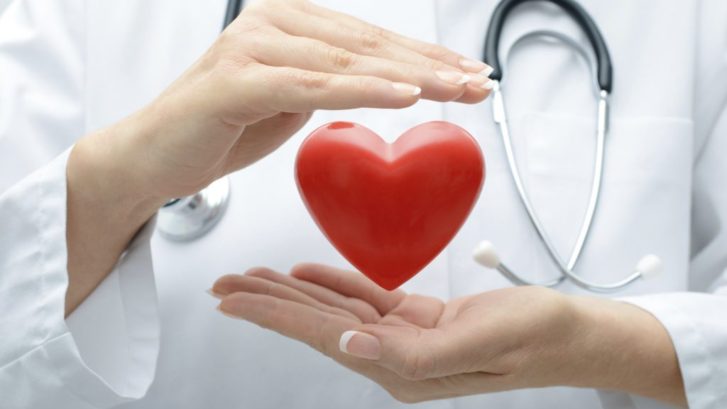How To Lower Blood Pressure Naturally
An alarming new report from the American Heart Association (AHA) released last week found that nearly half of all Americans—nearly 121 million adults—have some form of heart disease, defined as those with coronary heart disease, stroke, heart failure, or high blood pressure. The new figures partly stem from changes in what constitutes high blood pressure or hypertension. In 2017, the cut-off point for what is considered high blood pressure was revised downward, from 140/90 to 130/80, and only about half of those who are now considered hypertensive have it under control.
“As one of the most common and dangerous risk factors for heart disease and stroke, this overwhelming presence of high blood pressure can’t be dismissed from the equation in our fight against cardiovascular disease,” said Ivor J. Benjamin, MD, volunteer president of the AHA and director of the Cardiovascular Center at the Medical College of Wisconsin in Milwaukee in a statement. “Research has shown that eliminating high blood pressure could have a larger impact on [cardiovascular] deaths than elimination of all other risk factors among women and all except smoking among men.”
High blood pressure increases the risk of heart attacks and strokes, but can be successfully treated with various medications. Nevertheless, our concierge family doctors at MD 2.0 in Jupiter, Florida, will always try to lower blood pressure naturally, by recommending various lifestyle changes. Because February has been designated American Heart Month, we want to offer some suggestions on ways to lower blood pressure naturally.
Natural approaches
- Lose weight
Just as increases in weight raises blood pressure, losing weight lowers it. Even small amounts will do the trick: For every two pounds you lose, you can lower your blood pressure by one point. This is one of the best and most reliable ways to lower blood pressure.
- Exercise regularly
Exercise is also an excellent way to lower blood pressure, as well as improving your health overall. Regular physical activity—about 30 minutes a day—can drop your blood pressure by up to 10 points. More exercise equals even better results.
- Reduce stress
Chronic stress is a killer and contributes to high blood pressure by raising cortisol (the fight-or-flight hormone) and constricting blood vessels. It’s important to not only reduce stress when you can, but to control your reactions to it when you can’t. Deep breathing, mindfulness meditation, enjoyable hobbies . . . anything that calms you down and gives you even a brief respite from the daily stresses in your life can help lower your blood pressure.
- Decrease sodium (salt)
Because salt causes the body to retain fluids, it increases volume (blood pressure) within blood vessels. Some groups of people (African Americans, the elderly, and those with a family history of high blood pressure) are particularly salt sensitive. Limiting salt intake to less than a teaspoon a day (2,000 mg) is an effective way to lower blood pressure.
- Quit smoking
Every time you light up a cigarette, your blood pressure increases, and the effect lasts for up to 30 minutes after you put it out. See us if you need help to quit.
- Eat well
Potassium-rich foods (bananas, citrus fruits, avocados, potatoes, nuts, seeds, berries, beans, dairy, and vegetables) all help rid your body of sodium. Processed foods are especially high in sodium, so it’s best to avoid them whenever possible. In addition, a healthy diet will help you lose weight.
- Indulge (a little)
Dark chocolate has been shown to reduce blood pressure as much as low-dose aspirin, and just a half-ounce of 70-percent-cocoa chocolate daily will do the trick.
This year, when you celebrate Valentine’s Day, consider sending some love to your heart, along with your sweetheart. See us for more ways to lower your blood pressure. We can also evaluate whether medication is necessary to bring your blood pressure within normal levels.

